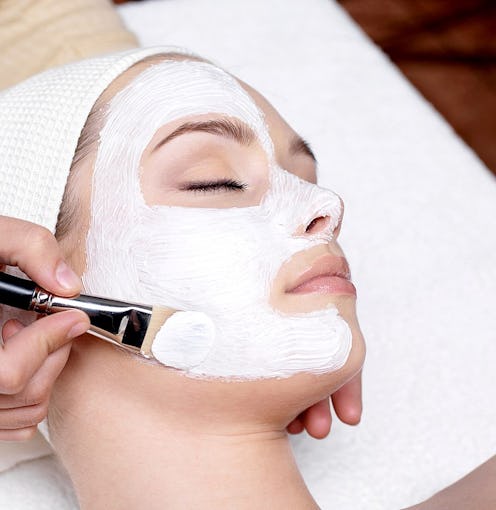Style
A New Study Recommends Banning Anti-Ageing Products, But It's Not What You Think
A report has called for a ban of the term "anti-ageing" in the cosmetic industry, meaning no more creams or gels being labelled this way, no more treatments being given this title. But why the blanket ban? I mean, are anti-ageing creams bad for you?
First, a little context. The Royal Society for Public Health, Vision, Voice and Practice (RSPH) published a report called "How attitudes to ageing affect our health and wellbeing" which unpacks endemic ageism within our society. The idea is that labelling products as "anti-ageing" implies ageing is something to be feared and actively fought against, with the criticism extending to the beauty industry, which arguably capitalises on our anxieties surrounding age.
The report outlines the ways ageism is reinforced, highlighting anti-ageing beauty products and the pressure to use them. The RSPH asks British brands to follow in the footsteps of Allure, the beauty magazine, which last year pledged to refrain from using these terms, because "we’re subtly reinforcing the message that aging is a condition we need to battle — think anti-anxiety meds, anti-virus software, or anti-fungal spray."
And there is no denying there is something inherently ageist about the anti-ageing industry: that it actively preys on anxieties and shame surrounding ageing. The RSPH report invokes the seminal Naomi Wolf book The Beauty Myth, outlining how gendered ageism can be. "The gendered nature of the fears surrounding growing ‘old’ was reflected in our research," the report elaborates. "With the survey finding that perceptions of when ‘old age’ begins are significantly higher among women than men."
And the fetishising of youth in women is everywhere. The average age of a catwalk model is around 17, according to Vogue. Countless Hollywood actresses have spoken out about the rampant ageism found in the film industry — with the likes of Anne Hathaway and Zoe Saldana stating that as they approached their thirties they began noticing they were being offered less roles. Youth is contextualised as aspirational and permissible, while age and ageing is seen as not.
Needless to say, women should feel entitled to do whatever they want with their bodies, including using these products if that's what makes them happy. Making women feel guilty for adhering to beauty standards demanded of us by society then shaming them for doing so is unfair, and just puts women in a catch 22. While there are expectations for us to look a certain way, there is often the sense that we are not supposed to be so crass as to admit we actually care about these things. This was sent up epically in Gone Girl's infamous "cool girl" monologue.
Just a few months ago another debate surrounding the beauty and cosmetics industry raged after an article published by The Outline decried a current vogue for elaborate skincare routines a "con." "Perfect skin has become the thinking woman’s quest," journalist Krithika Varagur wrote, kickstarting a backlash big enough to be dubbed the "skincare wars" by Vox.
Critics hit back, with Slate arguing that skincare is also about ritual, and the New Yorker making the case for relaxation. Within this, improving the appearance of your skin is just part of the parcel. Either way, one thing is for sure: it is nobody else's business what creams and gels you elect to put on your face but your own, thank you very much.
I've read The Beauty Myth and I know I am probably wasting time (and money) on adhering to an unfair, ageist, and Eurocentric beauty standard. But nevertheless, you would have to pry the hylarounic acid out of my cold, dead hand. An embargo on the use of "anti-ageing" on beauty products feels a long-overdue move, and absolutely a step in the right direction — but there is still much work to be done.
